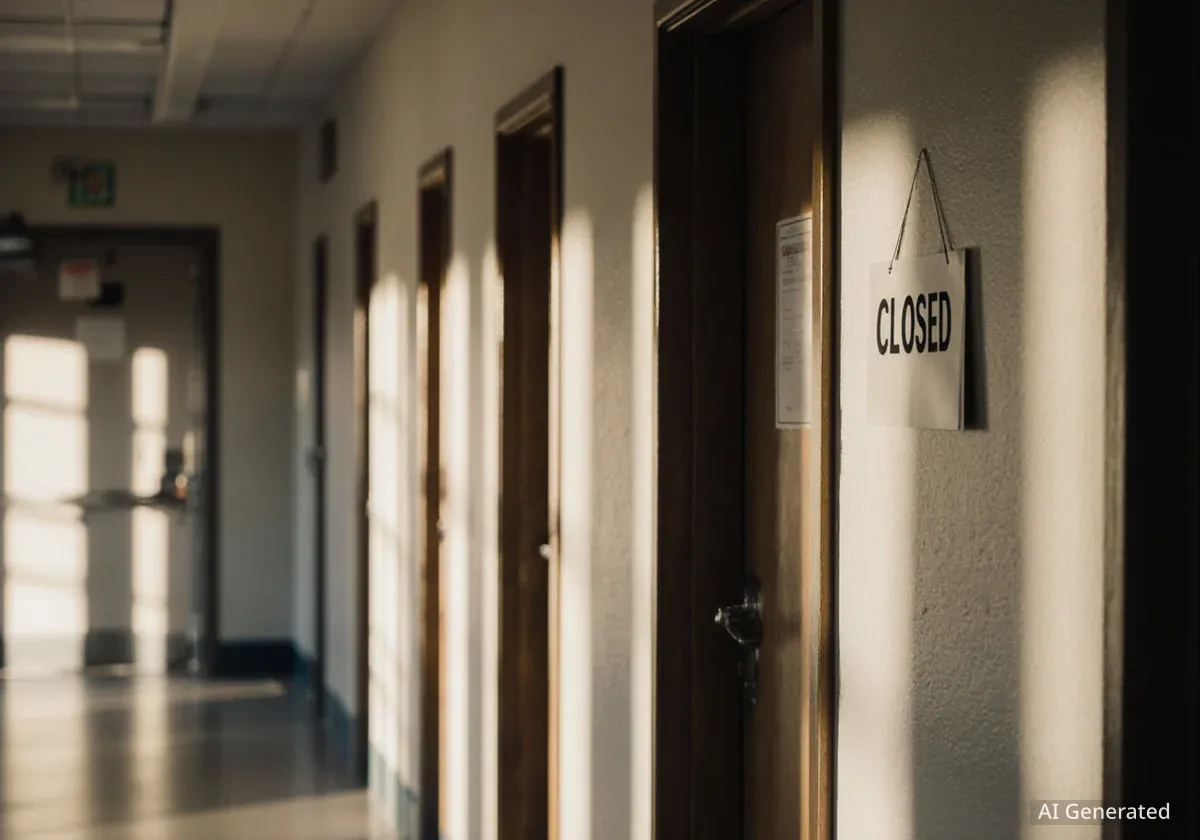Harvard University is confronting a significant challenge within its academic culture after an internal report revealed that 60% of all undergraduate grades are now A's. The report, authored by Dean of Undergraduate Education Amanda Claybaugh, has sparked intense debate and anxiety among students, who fear that proposed changes to curb grade inflation could negatively impact their mental health and overall college experience.
The 25-page document, circulated internally, argues that the university is “failing to perform the key functions of grading,” which has prompted the formation of a faculty committee to explore solutions. As the administration seeks to “restore the integrity” of its grading system, students are speaking out about the potential consequences of a more rigorous academic environment.
Key Takeaways
- An internal Harvard report found that 60% of undergraduate grades are A's, a sharp increase from 25% two decades ago.
- The administration has formed a faculty committee to address what it calls a failure in the function of grading.
- Students have expressed significant distress, citing concerns over mental health, academic pressure, and the ability to maintain extracurricular activities.
- Potential changes being considered include adding the median course grade to transcripts and introducing an A+ grade.
The Heart of the Issue: A Surge in Top Marks
The debate at Harvard centers on a dramatic statistical shift over the past 20 years. The internal report highlights a stark contrast between grading patterns of the past and the present, revealing a significant trend of grade inflation at the Ivy League institution.
Grade Inflation by the Numbers
According to the report from the Office of Undergraduate Education, the percentage of A's given to undergraduate students has more than doubled in two decades. Today, 60% of all grades awarded are A's, compared to just 25% two decades ago. This data is the primary driver behind the administration's push for reform.
Dean Amanda Claybaugh’s report suggests that this trend is “damaging the academic culture of the College.” The administration's view is that when top grades become the norm, they lose their meaning as a measure of exceptional performance. This can devalue the achievements of truly outstanding students and fail to provide meaningful feedback for those who could improve.
In response, a faculty committee has been assembled with a clear mandate: to propose changes that will “restore the integrity of our grading and return the academic culture of the College to what it was in the recent past.” The university is now at a crossroads, balancing its reputation for academic rigor with the modern pressures faced by its student body.
'Soul-Crushing': The Student Response
For many students, the news of a potential crackdown on grading was not a welcome call for academic integrity but a source of profound anxiety. The reaction on campus has been swift and emotional, with students expressing feelings of despair and frustration.
One student described the impact of the news in stark terms, telling The Crimson, Harvard's student newspaper, about their immediate reaction.
“The whole entire day, I was crying. I skipped classes on Monday, and I was just sobbing in bed because I felt like I try so hard in my classes, and my grades aren’t even the best. It just felt soul-crushing.”
This sentiment was echoed by others who are now questioning their decision to attend the prestigious university. The intense pressure of high school, aimed at securing a place at Harvard, was seen by many as a precursor to a more fulfilling, less punishing, academic life.
“It makes me rethink my decision to come to the school,” another student stated. “I killed myself all throughout high school to try and get into this school. I was looking forward to being fulfilled by my studies now, rather than being killed by them.”
The Broader Impact on Student Life
Concerns extend beyond individual grades to the very definition of a Harvard education. Students argue that a more demanding grading system would force them to sacrifice the extracurricular activities that are integral to their development and the university's identity.
“What makes a Harvard student a Harvard student is their engagement in extracurriculars,” one student explained. “Now we have to throw that all away and pursue just academics. I believe that attacks the very notion of what Harvard is.”
Student-athletes, who already balance a demanding schedule, feel particularly vulnerable. A member of the men’s lacrosse team noted that stricter grading fails to account for the significant time commitments required for their sport.
“It’s doing students a disservice because it’s not really accounting for what we have to do on a day to day basis, and how many hours we’re putting into our team, our bodies, and then also school,” he said.
Potential Solutions on the Table
The faculty committee is reportedly exploring several concrete measures to recalibrate the grading system. These proposals aim to create more differentiation in student performance and provide more context to the grades that appear on a transcript.
Proposed Grading Reforms
Two of the primary options being considered by the faculty committee include:
- Adding Median Grades to Transcripts: This would show how a student's grade compares to the overall performance of the class. A student earning a B in a difficult course where the median was a C+ would be viewed differently than a student earning a B in a course where the median was an A-.
- Introducing the A+ Grade: This would provide a way to distinguish the highest level of achievement within the 'A' range, giving professors a tool to reward truly exceptional work.
These changes are designed to add nuance to the grading process. By providing more context, the university hopes to make transcripts a more accurate reflection of a student's academic journey. However, it remains unclear if these measures will be enough to satisfy both the administration's goals and the students' concerns.
One student acknowledged the underlying issue, suggesting the intense student reaction points to a deeper problem. “There is a reason we’re in this situation in the first place, and the fact that you’re so scared of your GPA dropping .1 or .2 shows that there is a real crisis going on,” he commented.
As the committee continues its work, the Harvard community waits to see how the university will navigate this complex issue. The final decision will have lasting implications for the academic culture at one of the world's most renowned educational institutions, shaping the experience for current and future generations of students.





